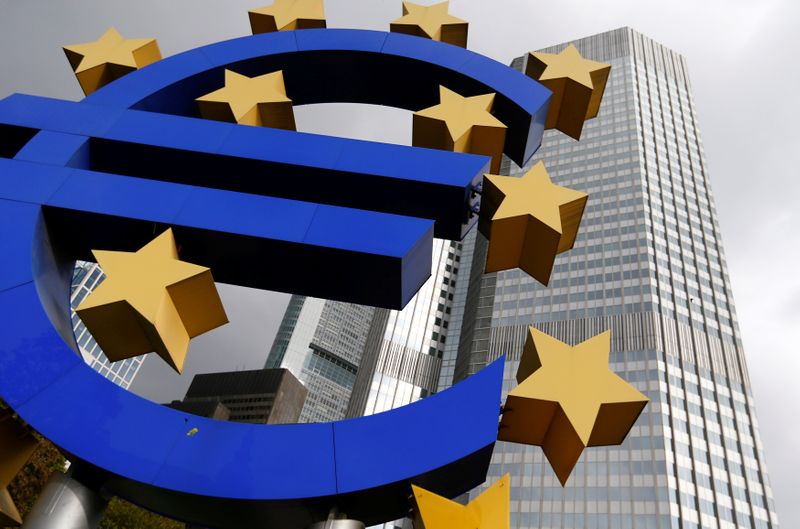FRANKFURT (Reuters) – Euro zone banks are failing to disclose even the most basic information about their exposure to climate change, the European Central Bank said on Friday, as it set out its expectations for banks on its watch.
Banks will be expected to take climate change into account when making loans or investing, considering aspects such as the carbon footprint of a business and the risk that it is affected by extreme weather or changes in regulation.
The ECB has given banks a year to gather the information and comply with its guidelines, although it does not plan to raise capital requirements for those that fail to do so, at least initially.
Currently, only 3% of the euro zone’s top banks disclose all basic climate-related information, 58% disclose less than half and 16% none at all, the ECB said.
“As of yet, virtually none of the institutions in the scope of the assessment would meet a minimum level of disclosures,” the ECB said.
“There is a general lack of articulation among climate-related topics and statements are too rarely supported by quantitative information.”
The ECB was also rolling out the final versions of its guidelines, which were put up for consultation in the spring.
Among a number of requirements, banks will have to quantify the climate-related impact and vulnerability of their clients, such as their water use, pollution, waste production and impact on biodiversity.
The ECB will ask banks to conduct a “self-assessment” early next year. It will then review the sector’s progress, carry out a stress test and take any “follow-up measures” in 2022.
Some banks have already started mapping climate-related risks, such as the depreciation of assets in carbon-intensive businesses, a shift to electric vehicles and the cost of repairing assets damaged by extreme weather, the ECB said.
(Reporting By Francesco Canepa; editing by Balazs Koranyi, Larry King)























